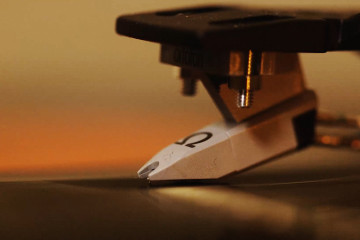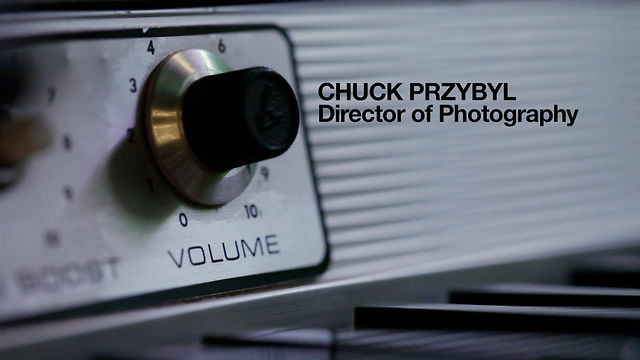When I heard that Moviemaker Magazine voted Chicago the #1 Best Big City to Live and Work as a Filmmaker, a number of thoughts came to mind. The first was “Of course”, The second was “Uh-Oh”, hopefully my city will not be overwhelmed with filmmakers. I imagined droves of crews, large and small, jockeying for positions at locations like a giant media spectacle.
But after reading a few lines into the article, it was very clear to me that my filmmaker’s paradise was not going away any time soon. No, the article did not herald a dystopian future rife with camera toting zombies, although I did learn that if a Tom Cruise dystopian future film being produced here they would be rewarded with a 30% tax break.
See, what I failed to realize was that – probably – no actual Chicago filmmakers had been polled about the joys of filmmaking in my city. Instead, they used six criteria to rank the cities – dollars generated, shooting days, indie shooting days, film community and culture, equipment and facilities, tax incentives and cost of a living, all completely valid measures, but mostly lists and statistics.
Here’s my attempt to add an independent filmmakers’ perspective. Keep in mind that I am describing a city that I’ve known and loved my whole life, and I’m sure other cities have similar qualities in varying degrees. But at the same time there is something wide open about this city, something that allows you to use in it many ways, as a stage.
Chicago locations have always been the city’s strong point. From seedy alleys to gleaming skyscrapers, – everything in between is good as well – beaches, the magnificent mile, viaducts, skyscrapers, neighborhoods, tree lined streets, urban blight, bridges, railroads, ships, grain elevators, forests, prairies, industrial wastelands, suburban sprawl, snow and sun. There really is a lot to choose from, but of course if and when you need deserts and mountains you may already know where to go for that.
Then there is the L train. Countless shots have been elevated through the use of an L track in the background, line it up at a strong diagonal angle and the rest is framing gravy. Or even driving shots from under the L makes for great cinema like in the Blues Brothers famous car chase scene under Lake Street. Full disclosure, I have an unparalleled obsessive love for the original Blues Brothers film.
Actually, The Blues Brothers movie is always referred to as a landmark for production in Chicago, the wide use of the city and substance abuse of the crew are legendary. The story goes that the iconic locations used in the movie put Chicago on the filming map, and the unbelievable access that the city gave the production can never be overstated. But the location stars that stand out to me are the street corners and the shops, with both creepy nooks and sweeping industrial landscapes – it is all here. I imagine they approached their scouting of the city much as i do – like a giddy kid. It can be like shooting fish in a barrel (good name for a production company too BTW).
A producer friend had remarked at the crew screening of our feature narrative – One Body: “If Chuck wasn’t Director of Photography, he’d have a great career as a location scout.” I’d like to think that was true but a lot of my knowledge of Chicago comes from exploring the city both as Director of Photography and many years as a street photographer. This city has been host to many amazing photojournalists and street photographers and even the recent spotlight on Vivian Maier, showcases Chicago as her playground as well.
I’ve worked on large and small scale projects in Chicago. Either can be facilitated by the ability to mobilize in this city. Whole blocks can be reserved for productions and currently are on a regular basis. But on a smaller scale you can maneuver a micro crew around this city with the speed and agility of a street photographer. If you are shooting a documentary or reality show you may want to do just that.
Actually one thing that seemed to be strangely absent from the Moviemaker Magazine article’s description of Chicago was the wonderful documentaries that are being produced here. The recent list of documentaries from Kartemquin Films and Siskel/Jacobs Productions are stellar. I point to great recent documentary films like The Interrupters, The Trials of Mohammed Ali, and Louder Than a Bomb, all true examples of quality documentary films produced in Chicago. The quality work being produced by other great documentary production crews and studios in Chicago is beginning mount and be recognized as well. When we discuss Chicago as a top city for filmmakers, I think it is the documentary filmmakers that reap the most benefit, even if they have the lowest profile. The accessibility and resources available make it possible to keep personal documentary projects in the works, whether as side projects or bonafide full productions.
The shooting of dramatic series’ has been building over the recent years. I remember hearing over and over way back when the show ER was first popular, “They only shoot the exteriors in Chicago.” I always understood it as a way to discredit what was being done here in some backhanded way. Now that Cinespace Film Studios has anchored studio production within the city, it has become easier to utilize the pool of actors that are still calling this city “home”. I’ve heard a handful of stories about Chicago actors returning from LA and New York because they can find work here once again.
Yes in all – it would appear, without bragging and boasting, that Chicago does have an edge when it comes to filmmaking. I know I am planning to make work here for a long time to come and I’m sure there is room for everyone to play along side.


